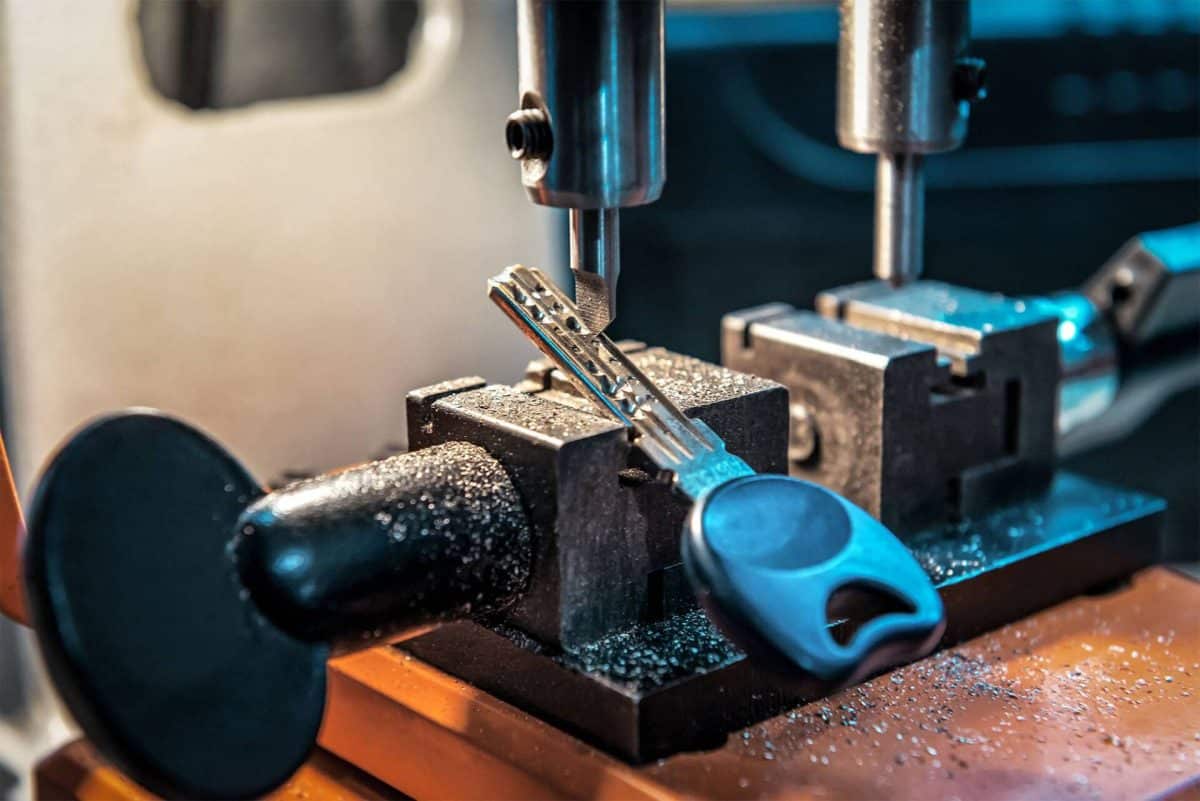Losing a key can be a stressful experience, especially if it’s the only one you have. Fortunately, locksmiths can often make a duplicate key even if you don’t have the original. Here’s a closer look at how this process works, what to expect, and why hiring a professional locksmith is the best choice.
Understanding the Key Duplication Process
Creating a duplicate key without the original is entirely possible, thanks to advanced locksmithing techniques and specialized tools. Locksmiths are trained to replicate keys by analyzing the lock or decoding a similar key pattern. This method is especially useful for individuals who may have lost the original or only key.
There are two primary methods locksmiths use to duplicate a key without the original:
- Impressioning: This technique involves inserting a blank key into the lock and carefully manipulating it to create small marks that reveal the shape of the key cuts. The locksmith then files the blank key based on these impressions, creating a replica that fits the lock. You can learn more about the basics of key impressioning in this informative article.
- Code Cutting: If the lock or key has a unique identification code, a locksmith can use this to create a duplicate. Many locks have codes engraved on them, which indicate the key’s specifications. Using the code, a locksmith can make a precise duplicate without requiring the original key.
Types of Keys a Locksmith Can Duplicate Without the Original
While many keys can be duplicated without the original, there are some restrictions depending on the type of key and security level. Here’s a breakdown of the common types of keys locksmiths can often duplicate:
- Standard House Keys: Most locksmiths can easily duplicate house keys without the original, as these keys typically follow simple designs.
- Car Keys: For some car keys, especially older models, locksmiths can create duplicates using key codes or by analyzing the lock. Newer models with transponder chips may require specialized programming tools.
- Office Keys: Locksmiths can also duplicate office or commercial keys, as long as they are not restricted or patented. For example, restricted keys used in commercial properties often require authorization from the key’s issuer. Here’s more about restricted key duplication and why it matters.
Situations Where a Locksmith Can’t Duplicate a Key
Some keys are intentionally designed to prevent duplication for security reasons. These keys are often used in high-security settings or for businesses that require restricted access. Here are a few examples of such keys:
- Patented or Restricted Keys: These keys are unique and require authorization for duplication. A locksmith cannot legally duplicate these without the necessary permissions.
- Keys with Special Electronic Components: Modern car keys or access cards with transponder chips may not be duplicable without specialized technology.
In cases like these, locksmiths can help by rekeying the lock and providing a new set of keys, ensuring that your property remains secure without needing the original key.
Benefits of Hiring a Professional Locksmith
If you’ve lost your only key, hiring a professional locksmith is essential. Here’s why choosing a locksmith for key duplication services is the best option:
- Accuracy and Reliability: A skilled locksmith will have the tools and expertise needed to create an accurate duplicate without damaging your lock.
- Quick Turnaround: Experienced locksmiths can often duplicate a key or rekey a lock quickly, saving you time and hassle.
- Enhanced Security: Professional locksmiths can assess the security needs of your property and recommend key types or lock upgrades that increase safety.
For more insights into the advantages of hiring a locksmith for professional services, check out this guide on hiring a locksmith for secure key duplication.
What to Expect When Hiring a Locksmith for Key Duplication
When you call a locksmith to duplicate a key without the original, the process is relatively straightforward. Here’s what you can expect:
- Initial Assessment: The locksmith will examine the lock to determine the best way to make a duplicate. In many cases, they’ll use a blank key and either impression or decode the lock to create the duplicate.
- Verification of Ownership: Some locksmiths may ask for proof of ownership before duplicating a key, particularly for high-security keys. This step ensures that they’re providing services responsibly.
- Key Creation and Testing: Once the duplicate key is made, the locksmith will test it to ensure it works smoothly in the lock. Any necessary adjustments are made on the spot.
Choosing the Right Locksmith for Key Duplication
When selecting a locksmith to duplicate a key without the original, it’s essential to choose a reliable and experienced professional. Here are some tips for finding the best locksmith in your area:
- Check Credentials and Reviews: Look for locksmiths with professional certifications and positive customer reviews. Reputable locksmiths prioritize customer satisfaction and security.
- Ask About Key Duplication Techniques: A professional locksmith should be transparent about their techniques, whether they’re using impressioning, code cutting, or another method.
- Compare Pricing: Prices for key duplication can vary, so it’s always wise to get an estimate before committing.
Top Lock & Garage: Professional Locksmith Services in Rhode Island
For those in Rhode Island looking for expert key duplication and locksmith services, Top Lock & Garage provides reliable and professional assistance. Whether you’ve lost your original key or need a duplicate for added convenience, our team is equipped with the tools and knowledge to help. Serving all of Rhode Island, Top Lock & Garage ensures that you receive prompt, secure, and effective locksmith solutions tailored to your needs.

